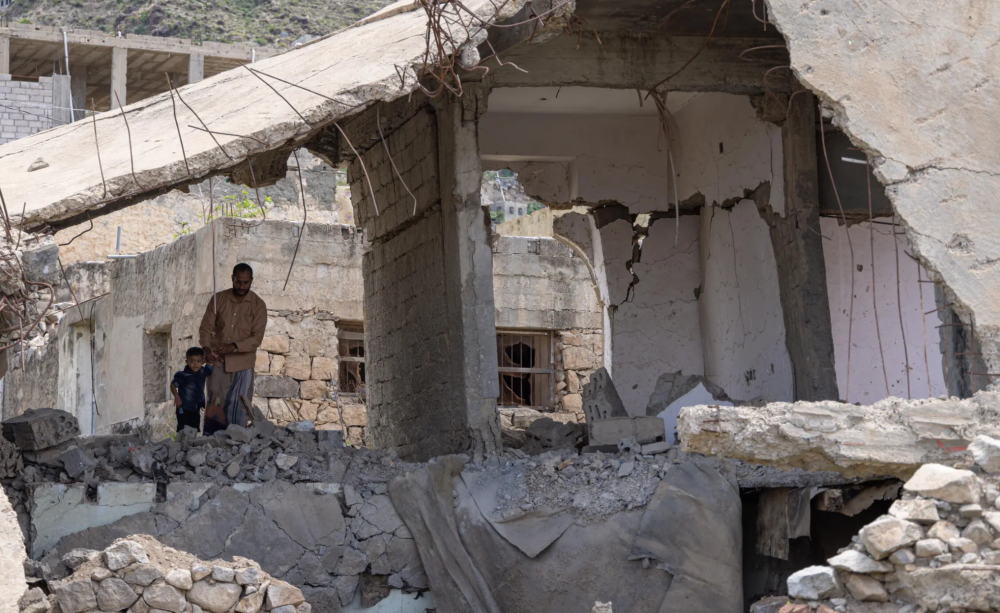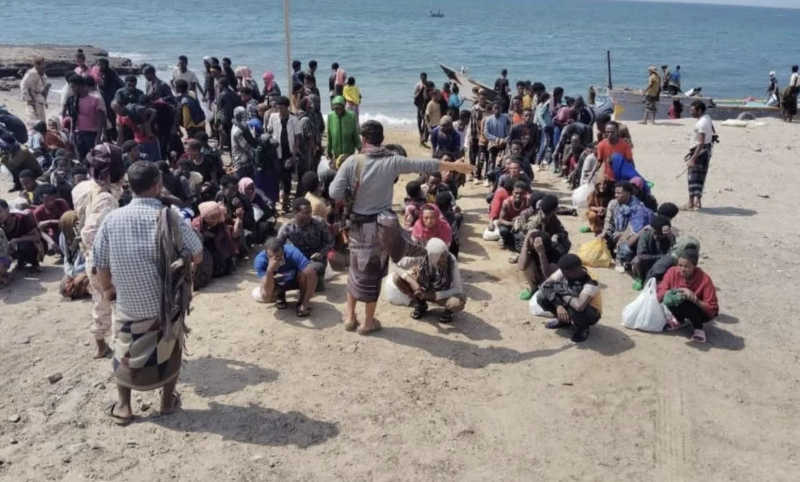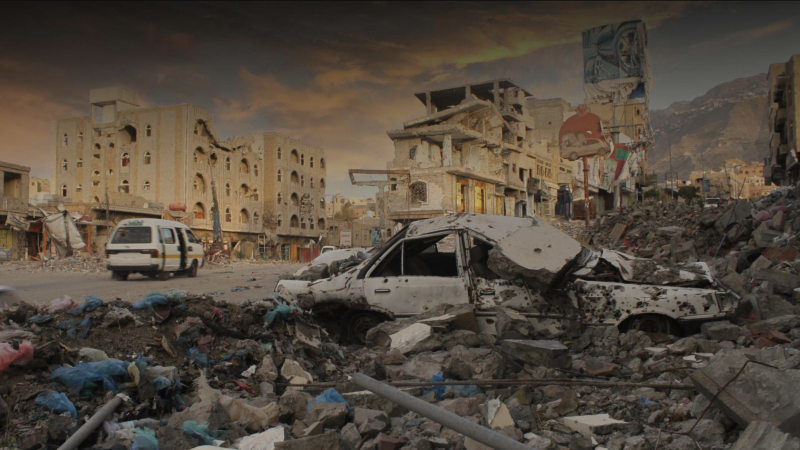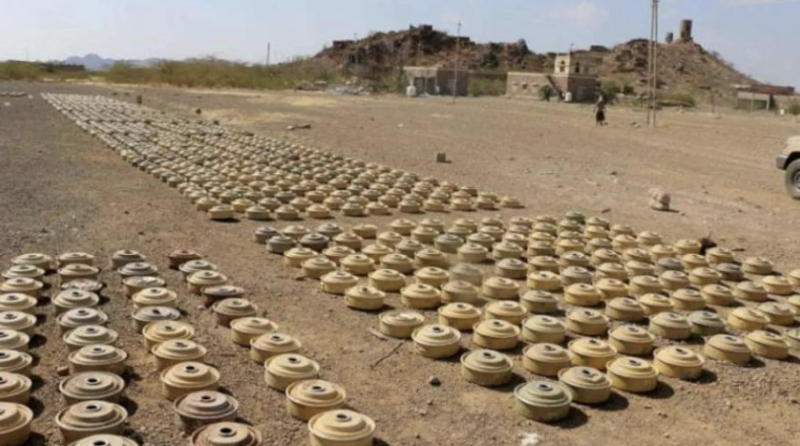UN Deputy Relief Chief urges Security Council to push for "lasting political resolution" in Yemen


Briefing to the Security Council on the humanitarian situation in Yemen by Joyce Msuya, Assistant Secretary-General for Humanitarian Affairs and Deputy Emergency Relief Coordinator, on behalf of Tom Fletcher, Under-Secretary-General for Humanitarian Affairs and Emergency Relief Coordinator
New York, 15 January 2025
As prepared for delivery
Thank you, Mr. President.
I also thank Special Envoy Grundberg for his briefing and his unfaltering efforts to bring about peace for the people of Yemen.
Mr. President,
Hostilities in and around Yemen and the wider region have persisted, with increasingly alarming humanitarian repercussions for civilians.
The Houthis have continued to target Israel with drones and missiles, causing several civilian injuries and damaging a school near Tel Aviv and homes in Jaffa.
Israeli airstrikes on Hodeida and Sana’a have killed and injured dozens of civilians and have caused significant damage to civilian infrastructure.
Overall, the last month has seen a concerning increase in attacks against vital civilian infrastructure upon which millions of people depend for electricity, safe movement, and the import of essential food and medical supplies.
Following a series of airstrikes – the most recent one being on Al Hodeidah and Ras Issa ports on 10 January – Yemen’s Red Sea ports have sustained substantial damage, leading to a significant reduction in their capacities. In particular, Al Hodeidah port – a critical gateway to not only humanitarian supplies but also fuel and commercial goods – operates at approximately 30 per cent of its capacity based on best current estimates.
Yemen relies on imports for over two-thirds of the food and some 90 per cent of all medicine and medical supplies for the population.
Humanitarians depend on these seaports to bring in life-saving humanitarian supplies, including food and medicine. Impairing their operations causes direct and immense civilian hardship and suffering. Infrastructure that plays such an indispensable role must be spared.
Mr. President,
As was widely reported, the Israeli attack on Sana’a International Airport on 26 December took place while a commercial passenger flight was landing – though the flight fortunately avoided harm – and the strike resulted in the deaths of at least three civilians and injuries to 30 more, including a crew member of the United Nations Humanitarian Air Service.
The Director-General of the World Health Organization, Dr. Tedros, the UN Resident and Humanitarian Coordinator, Julien Harneis, and other UN colleagues were also present at the airport at the time.
The airport sustained substantial damage, notably the destruction of the air traffic control tower, presenting concerns about flight safety and the safe movement of passengers going forwards. Like Yemen’s Red Sea ports, Sana’a airport is vital for humanitarian operations.
It is a lifeline for the movement of civilians, humanitarian workers and life-saving supplies. Disruptions to airport operations will directly impact our ability to deliver and will adversely affect civilians, including those who need to travel abroad to seek medical care.
I reiterate the Secretary-General’s demand that all parties respect international humanitarian law to protect civilians and do everything they can to spare infrastructure that civilians rely on.
Mr. President,
Dr. Tedros was in Yemen to negotiate the release of UN and other personnel detained by the Houthis and to discuss the humanitarian situation with partners and officials.
His engagements resulted in commitment from the Houthi de facto authorities to, first, explore a pathway leading to the release of all detained staff and, second, improve the conditions under which they are detained until their release.
I take this opportunity to urge the Houthi de facto authorities to uphold this commitment and to heed the Secretary-General’s call for the immediate and unconditional release of all UN and NGO personnel.
Mr. President,
People in Yemen continue to face a severe humanitarian and protection crisis.
According to the consolidated humanitarian appeal for 2025, which will be released shortly, the crisis is getting worse. At least 19.5 million people in Yemen need humanitarian assistance and protection this year – 1.3 million more than in 2024.
Almost half of Yemen’s population – over 17 million people – is unable to meet their basic food needs. The most marginalized, including women and girls, those displaced and communities such as the Muhamasheen, are the worst affected.
Almost half of all children under the age of 5 suffer from moderate to severe stunting caused by malnutrition.
Cholera is at appalling levels. The World Health Organization reports that Yemen bore the highest global burden of cholera in 2024, accounting for 35 per cent of cholera cases and 18 per cent of related deaths worldwide. This alone has added enormous burdens on a health system that is already severely stressed.
On top of this, an estimated 4.8 million people remain internally displaced. The majority of them are women and children.
Mr. President,
We remain committed to assisting those in need across Yemen. For this, we need support from this Council and from our donors to deliver life-saving humanitarian activities at the required scale, and we need the facilitation of principled humanitarian access.
I am encouraged to report that modest but sustained progress is being achieved on this last front.
Last month, a UN mission led by the Resident and Humanitarian Coordinator crossed the front line in Ta’iz City for the first time since 2016, building on the community’s local initiatives.
Over recent months, we have also seen the expedited approval of visas for international staff and agreements with NGO partners in Houthi-controlled areas – an encouraging development in addressing the bureaucratic impediments to humanitarian operation.
Mr. President,
Last month, Under-Secretary-General Fletcher asked for the Security Council’s support on three concrete points. As we enter a new constellation for this Council, I would reiterate these points consistent with my remarks today.
First, your collective influence to ensure full respect for international humanitarian law. This entails ensuring critical civilian infrastructure is spared – including the ports, airports, water and electricity networks.
Damaging this infrastructure can harm, first and foremost, those civilians already suffering and those most in need.
Second, support for full humanitarian funding to ensure the people of Yemen caught in this decade-long crisis can have some hope.
And third, ongoing and unwavering support for Special Envoy Grundberg’s efforts to enable the resumption of a peaceful, inclusive, orderly and Yemeni-led political transition process. Ultimately, the shortest and surest way out of a decade of suffering and humanitarian crisis in Yemen is through a lasting political resolution.
In addition, and in support for Dr. Tedros’s efforts on the ground in late December, I would ask this Council to support all efforts to secure the safe release of all detained UN and other humanitarian personnel.
Mr. President,
I hope we can find a better path forwards to find a resolution to this crisis and stand ready to work with you in that endeavor.
Thank you.

Aden — Security sources have revealed that dozens of irregular African migrants landed on the shores of Shabwa governorate in southeastern Ye…

Washington – Yemen has been ranked among the world’s top 20 countries experiencing the highest levels of political and deadly violence…

Aden – The operations room of the Saudi-funded Masam demining project announced that its field teams have successfully removed 2,656 landmine…